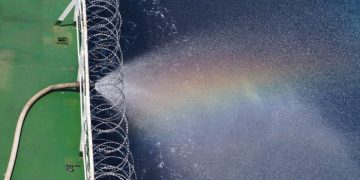German study unveils that EEDI suffers from important flaws
Its author claims that the only solution is A German study has made the conclusion that the Energy Efficiency Design Index (EEDI) appears important signs of flaws that will cause tention in the market. Stefan Kruger, the study author, of the Technical University of Hamburg-Harburg said that the only solution is "scrapping the EEDI altogether" and that it is a flawed concept based on extremely lousy mathematics. EEDI will become mandatory in 2013.The EEDI uses the average efficiency of an entire vessel class as a benchmark for individual vessels' efficiency. Because of the way it is calculated, it becomes impossible for vessels of a certain weight to surpass pre-determined speeds. A 10,407 dwt ro-ro vessels with engines powerful enough to reach 22 knots would never be able to pass EEDI certification.This effectively imposes a speed limit on vessel classes and larger vessels will not be able to install engines powerful enough to ensure safetyRo-ro vessels are currently exempt from EEDI regulations, due to the distorting effects of the EEDI calculation method The IMO will be meeting in January to discuss the application of EEDI to ro-ro vessels.The European Maritime Safety Agency recently publicised a paper it had commissioned from Finnish ...
Read more




















































